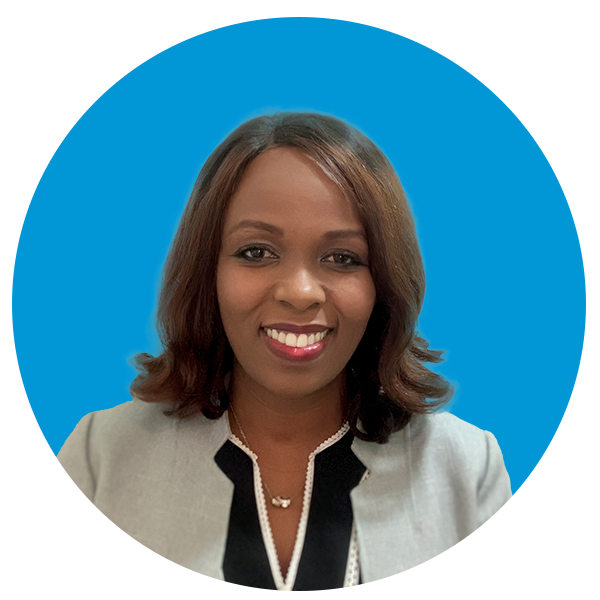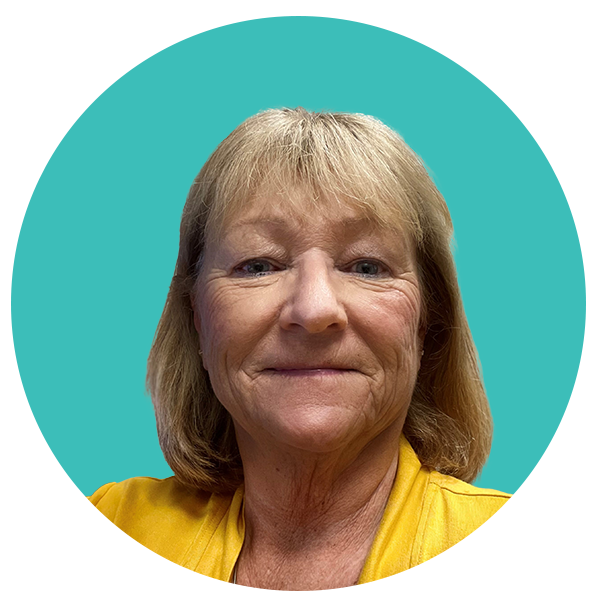
2021
Vision
to
Virtual
Mastering Telehealth Piece by Piece

Have a Question?
Speakers

Florence Kariuki
Chief Clinical Officer
Health Recovery Solutions
We are excited to welcome the newest member of our leadership team, Florence Kariuki, RN, BSN, MHA, FHELA. As Chief Clinical Officer, Florence is leading our clinical innovation and reimbursement strategies.Prior to joining HRS, Florence served in various leadership roles at Horizon Blue Cross Blue Shield of New Jersey, focused on innovation of Alternative Payment Programs, Value-Based Programming (PCMH, ACO, EOC), Population Health Management, Social Determinants of Health, Palliative Care, and Total Cost of Care Management strategies. She also has held Critical Care and Maternal/Child patient care positions at the Hackensack Meridian Health System.

Kim Bradley
Vice President/Chief Nursing Officer
Sentara Enterprises
Kim Bradley, MSN, RN, NEA-BC is the Vice President/Chief Nursing Officer for Sentara Enterprises (Home Health, Hospice, Home Infusion, and Specialty Pharmacy). She also has direct responsibility for Regulatory, Quality, and Education. She serves on the Board of Directors for the Va. Organization of Nurse Executives and Leaders.
Kim received her Nursing diploma from Riverside School of Professional Nursing, her BSN from Christopher Newport University, and her MSN from Walden University. She is board certified as a Nurse Executive, certified in Home Health compliance as a HCS-C, and certified as an Advanced Certified Home Care Executive.
Kim has worked in the Home Care industry for 30 years. She began as a field nurse and has worked in pretty much every role in an agency throughout her career. She has worked for private, regional and national companies prior to joining Sentara.

Kyle Lavergne
Director of Clinical Programs
LHC Group
Lavergne is a nurse practitioner at LHC Group in Lafayette, Louisiana. Originally from Opelousas, he earned his bachelor's degree in nursing from The University of Louisiana at Lafayette. He earned his master's degree, with honors, as a family nurse practitioner after completing his studies at Northwestern State University. He is currently in the Doctor of Nursing Practice Program at the University of Louisiana at Lafayette, with graduation on May 14, 2021. Lavergne began with LHC Group in 2020, where he serves as the Director of Clinical Programs. In this role, he has begun instituting evidence-based disease management clinical programs to address conditions such as heart failure, diabetes, and COPD, all to improve care in the home setting. He also researches to find clinical solutions which have positive impacts on patient care. He works collaboratively with various internal departments on educational material, best practices, and evidence-based material. He also oversees the evaluation and utilization of virtual care technology.
His responsibilities also include support for LHC Group’s ongoing clinical strategies and innovations – in partnership with both internal and external sources, and in alignment with the company’s strategic plan and business goals. He regularly reviews and analyzes internal and external data to support clinical innovation and identify strategic opportunities to improve patient care and outcomes amongst all service lines. Lavergne’s role is essential in evaluating potential clinical pilot projects. He works directly with the clinical team on design and implementation of these projects in target markets. Lavergne has earned many accolades, including the CIS Leadership Award, Telehealth Peak Performer from InTouch Health, and a Nightingale Awards and Acadiana Celebrates Nursing nomination. Lavergne is board-certified as a Family Nurse Practitioner by the American Nurses Credentialing Center. He is a Board member and co-chair of the health policy committee for LANP. He is also a member of the Louisiana Mississippi Hospice and Palliative Care Association. He currently serves on the education committee for American Heart Associations post-acute committee. He is a member of the American Academy of Nurse Practitioners and the Louisiana Association of Nurse Practitioners.
Clinical Roundtable: Addressing the Critical Nursing Shortage
To close out the first day of the Vision to Virtual conference, HRS’ Chief Clinical Officer, Florence Kariuki, was joined by Sentara Healthcare’s Vice President Clinical Services, Kim Bradley, and LHC Group’s Director of Clinical Programs, Kyle Lavergne, to discuss the critical nursing crisis confronting providers across the country and across care settings. During the roundtable, the panelists reflected on the impact of COVID-19 on the nursing shortage, how telehealth and RPM can support providers and patients, and the unique initiatives their organizations have launched to address the nursing shortage now and in the future.
Other Sessions
Sorry, no results found.
Keynote: The Rise of Telehealth and Remote Patient Monitoring
Vision to Virtual’s keynote session, hosted on November 3, 2021, presented the key drivers impacting the direction of healthcare and health-technology heading into 2022: the COVID-19 pandemic, the growing role of consumerism, increasing health disparities, telehealth reimbursement expansion, and more.
Establishing a Vision and Setting Goals
To successfully launch or expand a telehealth program, providers must first define and set clear goals and program objectives. This session will review the importance of aligning program goals with individual responsibilities as well as the organization’s overarching mission. Also, it will outline how to evaluate your goals periodically and when to adjust your workflows to ensure continued program success.
Building a Team and Ensuring Buy-In
This session, hosted on day one of the Vision to Virtual conference, outlined the core roles and responsibilities of the telehealth team within an organization, highlighting case studies from HRS partners with telehealth teams as small as 5 members and as large as 50 members.
Operationalizing a Virtual Care Strategy
On day one of Vision to Virtual, HRS’ Clinical Services team announced its new Virtual Visit Care Model to help provider organizations operationalize virtual care. During the session, HRS’ VP of Clinical Services, Patty Upham, unveiled the new care model, outlining best practices to launch a virtual visit pilot program, including staffing requirements, workflow recommendations, and LUPA requirements.
Keynote: Preparing for Telehealth Policy Changes
During the session Kyle and Ann of American Telemedicine Association provided a wrap up of the telehealth policy changes that occurred over the last two years that helped spur the adoption of telehealth and RPM during the COVID-19 public health emergency (PHE). In addition, Kyle and Ann offered a look forward at the game changing bills and policy changes to look for heading into 2022, along with advice for how to become an advocate for the expansion of telehealth and RPM services.
Demonstrating Program Success: Leveraging Patient Outcomes
There are two things that are necessary to secure long-term program buy-in and expansion: strong patient outcomes and program data. During this session, Dan Breazeale from Elara Caring joined HRS to review what data should be collected for your telehealth program, how to collect the necessary data, and in what ways you can use that data to inform future strategies and gauge success.
Preparing for Reimbursement
While many organizations deploy telehealth to improve patient outcomes and ease clinical workloads, telehealth programs can also generate revenue through reimbursement opportunities. This session reviews the requirements set by the CMS for obtaining reimbursement, highlighting a case study from HRS partner, Home Health Foundation.
Expanding Beyond Home Health: The Hospital at Home Care Model
This session reviews the key elements necessary to launching a Hospital at Home program, hearing directly from HRS partners at Allina Health who launched a Hospital at Home program in one month during the COVID-19 pandemic.
Executive Roundtable: Mapping Out the Future of HRS
During the final session of the 2021 Vision to Virtual conference, HRS Executives will sat down to discuss the future of HRS, highlighting new partnerships, product innovations, and clinical insights that will drive the company forward and support clients over the coming years.


